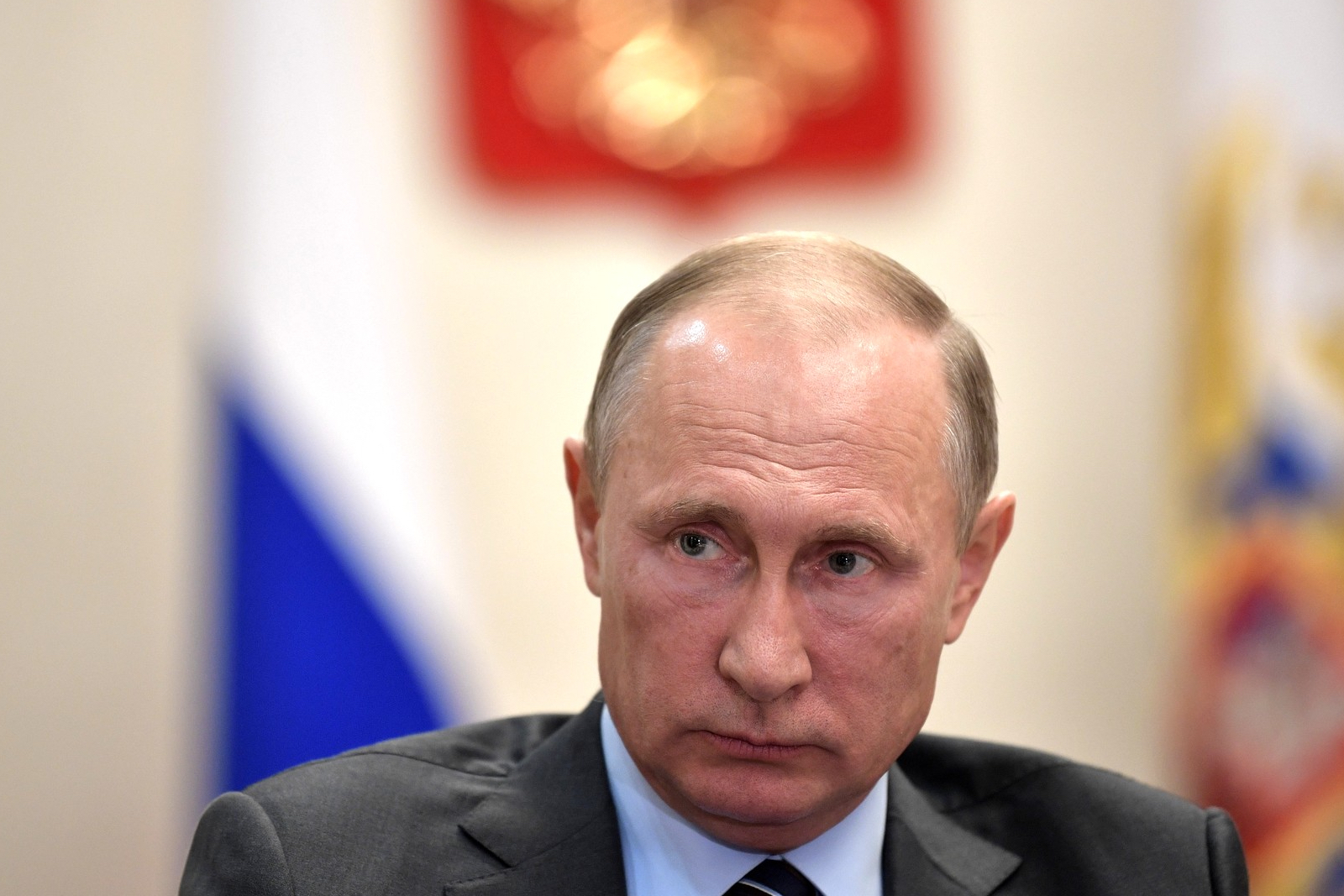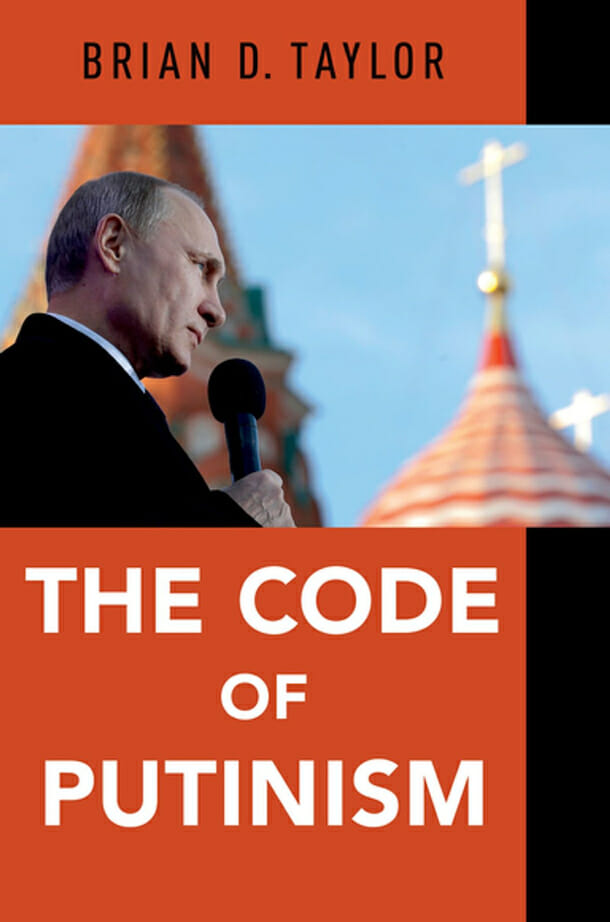
Books
Putinism and EU Federalism: What’s the Difference?
If paying only superficial attention to the EU and Russia in recent years one might only remember their antagonistic rhetoric, but let’s pause and reconsider: What if the EU and Russia were more alike than not?
Moreover: what if their likeness is at the root of their antagonism, like the strange mix of affinity and incompatibility between German Nazism and Soviet Communism? Could Brexit suit Putin’s objectives, yet at the same time challenge both Russian and EU federalism?
The stimulus for these startling questions is a recent book, The Code of Putinism, by Professor Brian D. Taylor on Putin’s rule of Russia since 1999. For the record, I have no association with Taylor or his university.
I should add, for the record, that Taylor himself does not compare Putinism to EU federalism. Indeed, his linkages are rare and clichéd. His second to last page contains this dreadful mimicry: “The rise of populist forces in the West, evidenced most dramatically by the UK ‘Brexit’ vote and the US election of Donald Trump, presents a major challenge to the post-World War II liberal order.”
Nevertheless, his “code of Putinism” unintentionally applies to the EU. Taylor categories three “key ideas of the Putinist code,” “statism,” “anti-Westernism” (particularly anti-Americanism), and “conservatism” or “anti-liberalism.”
Vladimir Putin is still a young man as national leaders go (66 years), yet he has ruled Russia (as prime minister or president) for almost 20 years. At the end of his current term, he will have ruled for 25 years.
In the first months of his first premiership, Putin made clear that a more centralized federal state was “key to the rebirth and rise of Russia.” At the same time (December 1999), Putin championed Russian collectivism over Atlanticist individualism. Meanwhile, he cozied up to the EU, largely in opposition to the Atlantic community, while the EU turned a blind eye to his authoritarianism, in return for fossil fuels. US rejection of their counsel against US invasion of Iraq in 2003 dramatically accelerated their anti-Americanism, but their fundamental anti-Atlanticism predates 2003 and is that of self-interest. Putinism and EU federalism are fundamentally similar, even while Putin undermines the EU, just as the Soviet and Nazi systems were fundamentally socialist and authoritarian, even as their nationalism differed.
Like EU federalists, Putin’s federalists see themselves as Western but stop short of the Atlanticism that starts in Britain and moves west. The continental traditions of authoritarianism, centralization, elitism, and public interventionism are incompatible with the Atlanticist traditions of democratization, decentralization, individualism, and private entrepreneurship.
This is what Taylor calls the “statism” in Putinism, which breaks down as authoritarianism, federalism, technocratic elitism, and centralization.
Putin appoints principals directly or anoints them as democratic candidates without effective competition. Similarly, the EU’s executives are largely appointed or anointed.
The legislature has some oversight, but itself suffers a democratic deficit due to low turnout and huge, remote constituencies. Putin has never engaged in public debate with a political rival. Have you ever seen a public debate between candidates to lead the EU? Almost all the EU’s debates are secretive. The public videos of the EU at work are mostly silent footage of summits before the doors close, or of noisy executives briefing quiet legislators or journalists.

Putin and the EU justify ever closer and wider federalism as counters to sovereignty, separatism, heterogeneity, and instability. The EU often justifies itself as the only bulwark against resurgent nationalism: thence, it pretends that nations need to surrender sovereignty for peace and stability; it mischaracterizes criticism as nationalism or populism.
Similarly, Putin is anti-nationalist within his domain. Taylor, in contrast to most analysts, explicitly claims that Putin is not a nationalist. Putin is anti-Western, but Russian nationalism would be incompatible with the state’s long history of multi-cultural imperialism or federalism. “Given this tension, it makes more sense to see Putin and his team (some of whom are not ethnically Russian, by the way) as embracing ideas of Russia as a strong state and a great power than nationalism per se.”
Putin’s elite – like the EU’s elite – sees itself as separate and superior to an ignorant and malleable mass. Putin rejects Atlanticist interpretations of revolutions as spontaneous popular reactions to authoritarianism. Putin assumes that all revolutions are manipulated by outside powers. (Putin thinks that even the Arab Springs of 2010 to 2011 were US-controlled, which gives the US far too much credit.) Ironically, the EU and its apologists dismiss Brexit as a spasm manipulated by Russia, or at least British nationalists in communication with Russia. Ultimately, the popularity of Brexit is dismissed as “populist,” which denies the popularity, legitimacy, and reactiveness of current anti-federalism.
Domestically, Putin trades off the country’s interests against the interests of himself, his tight social group – a group in which loyalty counts for more than competence, and thence Russia. In Taylor’s analysis, Putin really cares about making Russia stronger – he’s not just robbing Russia for personal gain, but he’s certainly self-interested too; and he rewards loyalty with personal gain, even at the expense of the state.
Indicatively, both the EU and Russia intervene to protect sectors such as agriculture and aerospace, making them less competitive, and passing the costs on to internal consumers. The distortions enrich the few at the expense of the many.
Taylor calls the formal part of Putin’s rule “hyperpresidentialism,” the informal part “clan networks.” For Taylor, “hyperpresidentialism is a highly centralized version of what political scientists call electoral authoritarianism” – where the rulers control the elections so they don’t lose, even though they want the pretense of full democracy.
Taylor warns that “a political system like Putinism, combining informal clan competition with hyperpresidentialism, cannot help but be an ineffective system of governance.”
As Taylor frequently puts it, “Putinism prioritizes ruling over governing.” “There is a contradiction in the code of Putinism between its great power aspirations, which requires economic modernization, and the emphasis on control, which blocks the necessary economic and political reforms.”
Russian and EU executives are notoriously indecisive and reluctant to delegate. Their lackeys lack initiative and critical thinking. The idea that the metropole knows what is best for the peripheries, and that the elite can homogenize the many nations beneath them, across huge distances, goes against everything we know from history and theory, yet both Putin and the EU have persuaded the articulate classes that they know best. Brexit indicates that the masses disagree.
After the statism and anti-Westernism, we get to the third key to the code: “conservatism” or “anti-liberalism.” This will most agitate the EU’s apologists, who leap at the chance to identify the EU as liberal/progressive against conservative resistance. Certainly, Putinism’s skepticism of change would fit that simplistic binary tension, as would Putinism’s spirituality. However, Putinism and EU federalism share prioritization of the state over the individual, of public intervention over private enterprise, and of conformity over freedom of expression. Moreover, Putin and the EU play fast and loose with the law when convenient (think of the EU enabling illegal migration across the continent, and closing the continent to British goods during agricultural epidemics). Both Putin and the EU quietly ignore constitutional obligations for transparent accounting and appointments.
What happens next? In some ways, Taylor’s book is optimistic. For instance, he is clear that authoritarianism is not inevitable in Russia – not determined by precedent or popular preferences. Plenty of states have escaped similar histories into a stable democracy. Before Putin’s premiership, Boris Yeltsin’s Russia was democratizing and liberalizing in the Atlanticist tradition. Today, Russians show plenty of preferences that could revive that trajectory (such as disgust with cronyism and corruption), even as they express strong support for Putin’s posturing. “Russia is authoritarian because Vladimir Putin made it so.” Thus, Putin’s successor could choose to make it less so. Similarly, new leadership at the EU could reform rather than retrench.
Moreover, Taylor argues that Putinism is unsustainable: it is over-ambitious internationally, and under-performing domestically. “Unless Putin can break out of the mentality that has shaped his leadership for the past 18 years – a highly unlikely development – his attempts to muddle through economic stagnation and state ineffectiveness will amount to a slow muddling down.”
Yet in the short term, Russia can grab plenty of advantages that will last longer than Putin, such as the Crimea in 2014. Indeed, Taylor airs the theory that Putin is prepared to break many eggs to make a bigger omelet because he is urgently trying to remake the world order before Russia relatively weakens even further.
Similarly, the EU seems desperate for wider and deeper integration, and to establish institutions competitive with the Atlanticist institutions, because it is conscious of its shrinking share of global trade and legitimacy.
Taylor’s final sentence hits the nail on the head for both Russia and the EU (although this is unintentional, as he had just foolishly equated Brexit with Putinism): “A successful country, however, is one in which institutions are stronger than rulers. That is a lesson that, in these troubled times, is relevant not only for Russia.”
